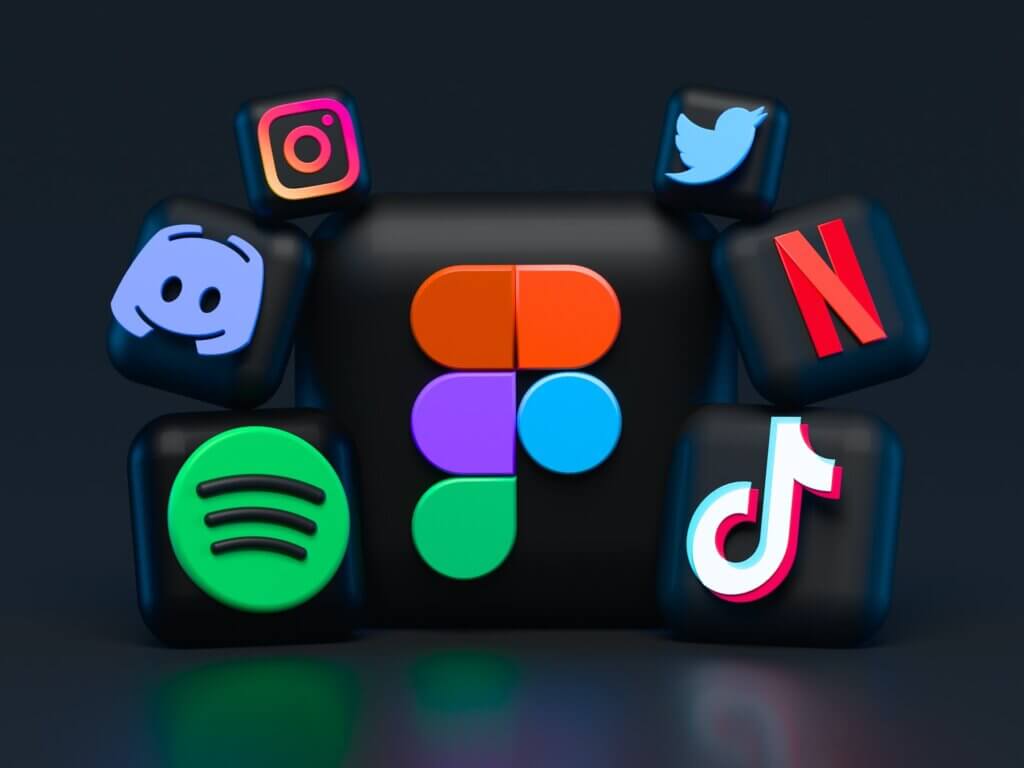Social media has come a long way since its inception in the late 1990s and early 2000s.
It has transformed the way we communicate, share information, and connect with others, both personally and professionally.
In this article, we will take a look at the evolution of social media, starting with its humble beginnings and tracing its development and changes to the present day.
We will also consider the future of social media and speculate on where it might go next, as well as the potential impacts it could have on society.

Photo by Alexander Shatov.
A Brief History of Social Media
The history of social media can be traced back to the 1970s when internet forums and online communities first emerged. These early forms of social media allowed people to connect and communicate with each other online, but they were primarily used by tech-savvy individuals and were not yet mainstream.
It wasn’t until the late 1990s and early 2000s that social media really began to take off. One of the first and most influential social media platforms was Six Degrees, which launched in 1997. This platform allowed users to upload a profile and connect with friends, much like modern social media platforms. However, it never gained widespread popularity and was eventually shut down.
Another early social media platform was LiveJournal, which launched in 1999 and was popular among young people. This platform allowed users to create a personal blog and connect with friends through mutual interests and communities.
The launch of Myspace in 2003 marked a turning point in the history of social media. Myspace was the first social media platform to gain widespread popularity and was used by millions of people around the world. It allowed users to create a profile, connect with friends, and share music and other content.
The success of Myspace paved the way for the emergence of other social media platforms, including Facebook, which launched in 2004. Facebook quickly became the dominant social media platform and remains so today, with billions of users around the world.
In the years since the launch of Facebook, social media has continued to evolve and expand. New platforms have emerged, including Twitter, Instagram, and TikTok, and social media has become integrated into nearly every aspect of our lives.
Today, social media plays a central role in the way we communicate, share information, and connect with others. It has changed the way we interact with the world around us and has had a profound impact on society.
Looking to the future, it is difficult to say where social media might go next. Some experts predict that virtual and augmented reality will play a bigger role in social media, while others believe that social media will become more personalized and targeted.
Whatever the future holds, it is clear that social media will continue to evolve and shape the way we connect with each other.
Social Media: Consumers and Businesses
Social media has become an integral part of modern society, with billions of people around the world using various platforms to connect with friends, family, and colleagues, as well as to consume and share news and other types of content.
For end users, social media provides a convenient and accessible way to stay in touch with loved ones and stay up to date on current events and trends. It also allows people to express themselves and share their interests and opinions with a larger audience. In addition, social media can serve as a source of entertainment and a way to discover new content and ideas.
However, social media also has its drawbacks. It can be addictive, leading to excessive screen time and potentially negative impacts on mental health. It can also expose users to online harassment and cyberbullying. In addition, the algorithms used by social media platforms to tailor content to individual users can create echo chambers, leading to a lack of exposure to diverse perspectives.
For businesses, social media can be a powerful marketing and communication tool. It allows companies to reach a large and targeted audience and interact with customers in real-time. Social media can also be used to gather customer feedback and insights, and to facilitate customer service.
However, businesses also face challenges with social media. It requires resources to manage and maintain a strong presence on various platforms, and there is the risk of negative comments and reviews going viral. In addition, social media can be a time-consuming and distracting task for employees, potentially impacting productivity.
This means social media has both benefits and drawbacks for both end users and businesses. It is important for individuals to use it responsibly and for businesses to carefully consider the role it plays in their marketing and communication strategies.
How Marketing Professionals use Social Media
Marketing professionals use social media as a way to reach and engage with their target audience. By creating a presence on various social media platforms, businesses can increase brand awareness, generate leads, and drive sales.
One way marketing pros utilize social media is by creating and maintaining a company page or profile on a platform. This allows them to share updates and content related to their business, such as new products or promotions, as well as interact with followers and answer questions.
Social media can also be used for paid advertising. Many platforms offer targeted advertising options, allowing businesses to reach specific demographics or users who have expressed interest in their industry. This can be an effective way to reach new potential customers and drive traffic to a company’s website.
Marketing professionals also use social media to gather customer feedback and insights. By monitoring and responding to comments and reviews on their social media pages, businesses can learn about their customers’ needs and preferences, and use this information to improve their products and services.
In addition, social media can be used for content marketing, which involves creating and sharing valuable, relevant, and consistent content with the goal of attracting and retaining a clearly defined audience. This can be in the form of blog posts, videos, infographics, or other types of media.
Social media influencers can also play a role in marketing efforts. These are individuals with a large following on social media who are considered experts or authorities in a particular industry. By partnering with influencers and sponsoring their content, businesses can reach a larger audience and increase brand awareness.
Marketing professionals use social media in a variety of ways to reach and engage with their target audience, gather customer feedback and insights, and drive traffic and sales. It is an important part of a modern marketing strategy and can be an effective way to reach and connect with customers.
Pros and Cons of Social Media
There are both pros and cons to the use of social media. Here are some of the main advantages and disadvantages:
Pros:
- Connectivity: Social media allows people to connect with friends, family, and colleagues, regardless of their location. It can also help users to stay in touch with loved ones who are far away.
- Access to information: Social media platforms can serve as a source of news and information, providing users with access to a wide range of content and perspectives.
- Self-expression: Social media allows users to share their thoughts, opinions, and interests with a larger audience. It can be a platform for creativity and self-expression.
- Business opportunities: Social media can be a powerful tool for businesses, allowing them to reach a large and targeted audience and connect with customers in real-time.
Cons:
- Addiction: Social media can be addictive, leading to excessive screen time and potentially negative impacts on mental health.
- Cyberbullying: Social media can expose users to online harassment and cyberbullying.
- Lack of privacy: Personal information shared on social media can be accessed by others, leading to privacy concerns.
- Spread of misinformation: Social media can be a source of fake news and misinformation, which can have harmful consequences.
- Distraction: Social media can be a time-consuming and distracting task, potentially impacting productivity.
How to Use Social Media in Your Career?
Using social media in your career can be a powerful tool if used effectively. Here are some tips on how to use social media to advance your career:
- Use LinkedIn to network and showcase your skills and experience: LinkedIn is a professional networking platform where you can connect with other professionals in your industry, find job opportunities, and showcase your skills and experience. Make sure to have a complete and up-to-date profile, including a professional headshot, a summary of your experience and skills, and any relevant work samples or projects. You can also join relevant groups and participate in discussions to showcase your expertise and build your professional network.
- Use Twitter to stay up-to-date and engage with industry influencers: Twitter is a great platform for staying up-to-date on the latest news and trends in your industry. Follow relevant hashtags and accounts to stay in the loop and engage with other professionals and industry influencers by commenting, retweeting, and sharing content. You can also use Twitter to share your own thoughts and insights, which can help to establish you as a thought leader in your field.
- Use Instagram to showcase your personal brand and creativity: Instagram is a visual platform that can be used to showcase your personal brand and creativity. Use Instagram to share photos and videos that showcase your personality and interests, and use relevant hashtags to make your content more discoverable. You can also use Instagram to share your work and highlight your accomplishments, which can help to establish you as an expert in your field.
- Use Facebook to connect with colleagues and industry groups: While Facebook is primarily a personal social media platform, it can also be a useful tool for connecting with colleagues and industry groups. Join relevant groups and participate in discussions to stay up-to-date on the latest trends and news in your field. You can also use Facebook to connect with colleagues and share your work, which can help to build your professional network and establish you as an expert in your field.
- Use social media to build your personal brand and online presence: In addition to the specific tips mentioned above, it’s important to remember that social media can be a powerful tool for building your personal brand and online presence. Be consistent in your messaging and branding across all of your social media platforms, and use social media to showcase your skills, expertise, and accomplishments. This can help to establish you as an expert in your field and make you more attractive to potential employers or clients.
Social media can be a powerful tool for advancing your career if used effectively.
By following these tips and being strategic in your use of social media, you can build your professional network, showcase your skills and expertise, and establish yourself as a thought leader in your field.
What’s Next for Social Media?
It is difficult to predict exactly what the future holds for social media, as the industry is constantly evolving and new platforms and features are being introduced. However, there are several trends and developments that are likely to shape the direction of social media in the coming years.
One trend that is already starting to emerge is the increasing focus on privacy and security. In recent years, there have been numerous scandals involving the misuse of user data by social media platforms, leading to calls for greater transparency and more robust privacy protections.
As a result, we may see more social media companies adopting stricter privacy policies and implementing new security measures to protect user data.
Another trend that is likely to continue is the proliferation of video content on social media. Video has become an increasingly popular format on platforms such as YouTube, TikTok, and Instagram, and it is expected that this trend will continue as users continue to consume and share more video content.
The rise of artificial intelligence and machine learning is also expected to have an impact on social media. These technologies can be used to personalize content, recommend friends and pages to follow, and improve user experience in various ways.
However, there are also concerns about the potential negative consequences of AI, such as the amplification of fake news and the spread of misinformation.
Another development to watch is the increasing integration of social media with other technologies, such as virtual and augmented reality. This could allow users to experience social media in new and more immersive ways, such as by participating in virtual events or visiting virtual locations.
Overall, the future of social media is likely to be characterized by a continued focus on privacy and security, the increasing prevalence of video content, the integration of AI and other technologies, and the emergence of new platforms and features.
It will be interesting to see how these trends and developments shape the way we use and interact with social media in the coming years.





